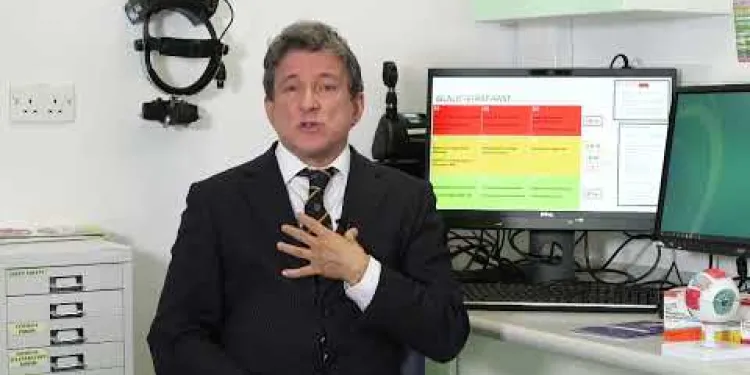
Find Help
More Items From Ergsy search
-

Are there any common side effects of Mounjaro?
Relevance: 100%
-

What are the common side effects of vaccines?
Relevance: 100%
-

What are the common side effects of Abiraterone?
Relevance: 100%
-

What are common side effects of Wegovy?
Relevance: 99%
-

What are the common side effects of ketamine?
Relevance: 99%
-

What are common side effects of Baxdrostat?
Relevance: 99%
-

What are the common side effects of Ozempic?
Relevance: 99%
-

What are common side effects of antibiotics?
Relevance: 99%
-

What are common side effects of Ozempic?
Relevance: 99%
-

What are common side effects of CBD?
Relevance: 97%
-

Are there any common side effects of GLP-1 medications?
Relevance: 93%
-

What are the common side effects of spinal anaesthesia?
Relevance: 93%
-

What are the common side effects after a facelift?
Relevance: 90%
-

What are common side effects of weight loss drugs?
Relevance: 88%
-

Is insomnia a common side effect of weight loss drugs?
Relevance: 85%
-

Are headaches a common side effect of weight loss medications?
Relevance: 84%
-

What are the side effects of Botox?
Relevance: 82%
-

What are the side effects of Ozempic?
Relevance: 81%
-

What are the side effects of Paracetamol?
Relevance: 81%
-

What are the side effects of Botox?
Relevance: 80%
-

What are the side effects of Ibuprofen?
Relevance: 79%
-

Are there common side effects that fake weight loss drugs may cause?
Relevance: 79%
-

What are the side effects of Aspirin?
Relevance: 79%
-

What are the less common but serious side effects of weight loss drugs?
Relevance: 78%
-

What are the common side effects of Wegovy tablets?
Relevance: 78%
-

What are the side effects of Paillon treatment?
Relevance: 77%
-

Are there any side effects to the flu vaccine?
Relevance: 76%
-

What are the side effects of bowel cancer treatment?
Relevance: 74%
-

Are there any side effects of the winter flu jab?
Relevance: 74%
-

What are the side effects of caffeine pouches?
Relevance: 74%
-

Is nausea a frequent side effect of Ozempic?
Relevance: 74%
-

Will I experience side effects from the COVID jab?
Relevance: 74%
-

What are the side effects of prostate cancer surgery?
Relevance: 73%
-

Do defibrillators have any side effects?
Relevance: 73%
-

Glaucoma: general side effects of eye drops
Relevance: 72%
-

What are the known side effects of ketamine usage?
Relevance: 72%
-

Does the flu jab have any side effects?
Relevance: 71%
-

Can Ozempic cause serious side effects?
Relevance: 71%
-

What should I do if I experience side effects from a vaccine?
Relevance: 70%
-

What side effects might occur with statin use?
Relevance: 70%
Are There Any Common Side Effects of Mounjaro?
Mounjaro is a medication that has been prescribed to manage certain health conditions. While it can be highly effective for its intended purposes, like many medications, it may come with some common side effects. Understanding these potential side effects can help patients be more informed and ready to handle them if they arise.
Gastrointestinal Issues
One of the most commonly reported side effects of Mounjaro pertains to the gastrointestinal system. Patients have reported experiencing nausea, diarrhoea, and vomiting. These symptoms often occur as the body is adjusting to the medication. It's crucial to stay hydrated and consult with a healthcare professional if these symptoms persist, as they can advise on the best course of action.
Appetite Changes
Another reported side effect is a change in appetite. Some patients may experience increased hunger, while others might notice a reduction in appetite. These changes can vary significantly from person to person. If changes in appetite affect your daily nutrition or quality of life, it is advisable to discuss this with your doctor.
Fatigue and Dizziness
Fatigue and dizziness are also common side effects of Mounjaro. These symptoms can impact daily activities and overall well-being. If you're feeling unusually tired or dizzy, ensure that you are not engaging in activities that require high levels of concentration, such as driving. Should these symptoms persist, seeking medical advice is recommended to ensure they are properly managed.
Skin Reactions
Some individuals might experience skin reactions as a side effect of taking Mounjaro. This can include mild rash or itching. While generally not severe, if a skin reaction becomes bothersome or worsens, it’s vital to seek advice from a healthcare provider. They can evaluate whether this is a typical reaction or if an adjustment in medication is necessary.
Headache
Headaches are another side effect some patients might encounter. While headaches can be common when starting a new medication, persistent or severe headaches should be assessed by a medical professional. They can suggest appropriate remedies or adjustments to alleviate this discomfort.
When to Seek Medical Advice
While most side effects are mild and tend to resolve as the body adjusts to Mounjaro, it's important for patients to remain observant of their reactions to the medication. If any side effect becomes severe or unmanageable, or if they experience symptoms not listed here, it’s crucial to contact a healthcare professional. They can provide guidance tailored to your health needs and help determine if Mounjaro is the right medication for your situation.
What Side Effects Can Mounjaro Have?
Mounjaro is a medicine that helps with some health problems. Like many medicines, it might have side effects. Knowing what these are can help you be ready for them.
Stomach Problems
Some people have stomach issues when they take Mounjaro. These can include feeling sick (nausea), having diarrhea, or vomiting. This happens because your body is getting used to the medicine. Make sure to drink lots of water. If these problems don't go away, talk to your doctor.
Changes in Hunger
Some people notice they feel hungrier or less hungry. This is different for everyone. If it makes eating hard for you, talk to your doctor about it.
Tiredness and Feeling Dizzy
You might feel very tired or dizzy when taking Mounjaro. This can make it hard to do things like drive a car. If this keeps happening, ask your doctor for help.
Skin Changes
Some people get a skin rash or itching. If this happens and gets worse, talk to your doctor. They can tell you if it's normal or if the medicine needs to be changed.
Headaches
Taking Mounjaro can sometimes cause headaches. If your headache is really bad or doesn't go away, see your doctor. They can help you find ways to feel better.
When to Ask for Medical Help
Most side effects go away as your body gets used to Mounjaro. But if any side effects become serious or new ones appear, call your doctor. They can help decide if Mounjaro is the best medicine for you.
Frequently Asked Questions
What are common side effects of Mounjaro?
Common side effects of Mounjaro include nausea, vomiting, diarrhea, decreased appetite, and abdominal pain.
Is nausea a common side effect of Mounjaro?
Yes, nausea is one of the most common side effects experienced by users of Mounjaro.
Can Mounjaro cause vomiting?
Vomiting is a potential side effect of Mounjaro, although not everyone will experience it.
Does Mounjaro lead to diarrhea?
Yes, diarrhea is reported as a common side effect among users taking Mounjaro.
Will my appetite change with Mounjaro?
Decreased appetite is a common side effect, which may contribute to weight loss while using Mounjaro.
Are abdominal issues common with Mounjaro?
Abdominal pain can occur frequently in users of Mounjaro, along with other digestive disturbances.
Should I be concerned about the side effects of Mounjaro?
While common side effects are typically mild, you should consult your healthcare provider if you have concerns.
How can I manage nausea caused by Mounjaro?
Taking Mounjaro with food and staying hydrated can help manage nausea. Consult a doctor for persistent symptoms.
What should I do if I experience severe side effects from Mounjaro?
Seek medical attention if side effects are severe or persistent. Your doctor may adjust your dosage or suggest an alternative treatment.
Does everyone experience side effects from Mounjaro?
Not everyone will experience side effects. The severity and presence of side effects can vary from person to person.
Can I prevent side effects when taking Mounjaro?
While not all side effects can be prevented, following your doctor's instructions and taking Mounjaro as prescribed can help minimize them.
Are there any long-term side effects associated with Mounjaro?
Long-term side effects are less common, but you should discuss any ongoing concerns with your healthcare provider.
Can Mounjaro cause dehydration?
Diarrhea and vomiting from Mounjaro can lead to dehydration, so staying adequately hydrated is important.
Is weight loss a side effect of Mounjaro?
Weight loss can occur due to decreased appetite and other digestive system-related side effects.
How long do side effects from Mounjaro last?
The duration of side effects can vary. Some may dissipate over time as your body adjusts to the medication.
Can I take over-the-counter remedies for Mounjaro side effects?
Consult your doctor before taking any over-the-counter remedies for side effects to ensure they do not interact with Mounjaro.
Is dizziness a side effect of Mounjaro?
While not as common, dizziness can occur and should be discussed with your healthcare provider if experienced.
Should I stop taking Mounjaro if I experience side effects?
Do not stop taking Mounjaro without consulting your doctor, even if you experience side effects.
Does Mounjaro cause fatigue?
Fatigue can be experienced by some individuals, and any persistent symptoms should be discussed with a healthcare provider.
What are the signs of a serious reaction to Mounjaro?
Signs of a serious reaction include severe abdominal pain, allergic reactions, or signs of dehydration; seek medical attention immediately.
What can happen when you take Mounjaro?
Mounjaro is a medicine that can help you feel better. But sometimes, it can make your body feel different. This is normal and called a side effect.
Here are some things you might feel when using Mounjaro:
- Your tummy might feel upset, like when it hurts after eating too much.
- You might feel dizzy, which is like when you spin around too fast.
- You could feel tired, like when you want to nap.
- Your mouth might be dry, and you feel really thirsty.
If you feel any of these things, it's a good idea to tell an adult or a doctor. They can help you feel better. You can also use a diary to write down how you feel every day or use pictures to show your feelings. This can help you remember what to tell the doctor.
When you take Mounjaro, you might feel a bit sick to your tummy. It can make you feel like you need to throw up or have an upset tummy.
Some people also feel like they don't want to eat as much, and their tummy might hurt a little too.
If you're worried, tell a grown-up or a doctor. It's good to keep a journal or use a mood tracker app to write down how you feel each day. This can help you and your doctor understand what is happening.
Can Mounjaro make you feel sick?
Sometimes medicine can upset your tummy. Here are some tips to feel better:
- Try to eat plain food like bread or rice.
- Drink small sips of water.
- Rest and relax.
- If you keep feeling sick, talk to a grown-up or a doctor.
Yes, Mounjaro can make you feel sick to your stomach. This is very common.
Can Mounjaro make you throw up?
Mounjaro medicine can make some people feel sick and throw up, but not everyone will feel this way.
Can Mounjaro cause diarrhea?
Mounjaro is a medicine. It might upset your tummy.
Some people might get diarrhea. This means you need to go to the toilet more and it is watery.
If your tummy feels bad, talk to an adult or a doctor. They can help you feel better.
If you find it hard to read, ask someone to help you understand, or try using audiobooks or reading apps to make it easier.
Yes, some people who take Mounjaro might get diarrhea. This can happen to a lot of people.
Will I feel hungrier or less hungry with Mounjaro?
When you take Mounjaro, you might not feel as hungry. This can help you lose weight.
Do tummy problems often happen with Mounjaro?
People who use Mounjaro might often get stomach aches and other tummy troubles.
Should I worry about Mounjaro's side effects?
Mounjaro is a medicine that helps some people. But like all medicines, it can have side effects.
Side effects are changes in your body that might happen when you take medicine. Sometimes these changes are small, like a tummy ache. Sometimes they can be bigger.
If you have side effects, tell an adult or a doctor. They can help you know what to do next.
Here are some ways to make reading easier:
- Use a finger or a ruler to help you follow the words.
- Read with a friend or family member who can help you.
- Take breaks if reading feels hard.
Some side effects might happen, but they are usually not serious. If you are worried, talk to your doctor or nurse.
How can I stop feeling sick from taking Mounjaro?
Here are some easy tips to help you:
- Eat small meals often.
- Drink lots of water.
- Rest and relax.
- Avoid strong smells.
You can use these tools:
- Try ginger tea or ginger candies.
- Breathe slowly to feel calm.
Eating food with Mounjaro and drinking plenty of water can help if you feel sick. Talk to a doctor if you still feel bad.
What if Mounjaro makes me feel very sick?
If Mounjaro makes you feel very sick, here is what you can do:
- Tell an adult right away.
- Call your doctor or nurse.
- If you are very scared or it's an emergency, call for help. You can call 911.
It's important to talk to your doctor if Mounjaro makes you feel bad. They can help you feel better.
You might find it helpful to use a phone or alarm to remind you to call the doctor.
If you have strong side effects or they don't go away, go to the doctor. The doctor might change your medicine amount or give you a different medicine.
Do all people feel side effects from Mounjaro?
No, not all people feel side effects. Some might, and some might not.
Here are some tips if you are worried:
- Talk to your doctor. They can help.
- Tell someone you trust how you are feeling.
- Ask questions if you don't understand something.
Not everyone will have side effects. Side effects can be different for each person.
How can I stop feeling sick when I take Mounjaro?
Some people feel sick when they take Mounjaro. Here are some tips to help:
- Talk to your doctor. They can give you advice.
- Take Mounjaro with food. It can help your tummy feel better.
- Drink lots of water. It keeps you healthy and helps your body.
- Rest if you feel tired. Your body needs energy.
If you still feel sick, tell your doctor. They can help you feel better.
Sometimes people can have side effects from medicine. You can’t stop them all, but if you follow your doctor's advice and take Mounjaro medicine the right way, it might help you feel better.
Does Mounjaro have any long-term side effects?
Sometimes, medicines can have effects that last a long time. These are called long-term side effects. It is important to ask your doctor or nurse if Mounjaro has any of these effects.
If you have trouble reading, you can ask someone to help read the information with you. You can also use tools like audiobooks or reading apps that read text out loud.
Long-term side effects do not happen often. If you have worries that last a long time, talk to your doctor or nurse.
Can Mounjaro make you thirsty?
Sometimes medicine like Mounjaro can make you feel very thirsty. This means your body needs more water.
If you feel thirsty a lot, drink water. You can also ask a grown-up or a doctor for help.
When taking Mounjaro, you might get diarrhea or feel like throwing up. This can make your body lose water. It's really important to drink enough water to stay healthy.
Does Mounjaro make you lose weight?
Taking Mounjaro medicine might make you lose weight. Talk to your doctor if you have questions. Using a chart can help you see how your weight changes.
Losing weight can happen because you don't feel hungry or because your tummy isn't feeling well.
Here are some ways that might help:
- Try eating small meals often instead of big meals.
- Drink smoothies or milkshakes to get more calories.
- If you're worried, talk to a doctor or nurse.
How long do side effects from Mounjaro last?
Mounjaro is a medicine. Sometimes, medicines can make you feel a bit unwell. These are called side effects.
Side effects can feel different for everyone. Some side effects from Mounjaro might last a few days. Other side effects might last longer.
If you feel worried about side effects, you can talk to a doctor or nurse. They can help you understand and feel better.
You can also ask a friend or family member to help you read and understand more about Mounjaro.
Side effects can last different amounts of time. Some side effects might go away after a while when your body gets used to the medicine.
Can I use store-bought medicine for Mounjaro side effects?
Talk to your doctor before you take any medicine you can buy at the store to help with side effects. This is to make sure it is safe with Mounjaro.
Does Mounjaro make you feel dizzy?
Feeling dizzy is not very common, but it can happen. If you feel dizzy, it is important to talk to your doctor about it.
What should I do if Mounjaro makes me feel unwell?
If Mounjaro medicine makes you feel bad, you don't have to stop taking it on your own. First, talk to a doctor or nurse. They can help you decide what to do.
Sometimes you need to change how much you take or try something different. The important thing is to not feel worried and get help.
If reading is hard, you can ask someone you trust to read with you. You can also use apps or tools that read text out loud.
Talk to your doctor before you stop taking Mounjaro, even if it makes you feel unwell.
Does Mounjaro make you tired?
Some people who take Mounjaro might feel more tired than usual. If you feel very tired, you should talk to a doctor.
Here are some ways to help if you feel tired:
- Rest when you can.
- Drink water to stay hydrated.
- Eat healthy food.
- Ask for help if you need it.
If you keep feeling tired, make sure to tell a doctor or nurse.
Sometimes people feel very tired. If you feel really tired for a long time, talk to your doctor about it. They can help you.
What are the signs of a serious reaction to Mounjaro?
If you take Mounjaro and feel sick, it's important to know when it might be serious. Watch for these signs:
- Bad rash on your skin
- Trouble breathing
- Swelling on your face, lips, or throat
- Feeling very dizzy
- Fast or pounding heart
If you notice any of these signs, tell a grown-up, like a parent or doctor, right away.
If reading is hard, ask someone to read it to you. Point to the words if you need help.
If you have a bad tummy ache, an allergic reaction, or think you are very thirsty and can't get enough water, you should go to the doctor right away.
Useful Links
This website offers general information and is not a substitute for professional advice.
Always seek guidance from qualified professionals.
If you have any medical concerns or need urgent help, contact a healthcare professional or emergency services immediately.
Some of this content was generated with AI assistance. We’ve done our best to keep it accurate, helpful, and human-friendly.
- Ergsy carfully checks the information in the videos we provide here.
- Videos shown by Youtube after a video has completed, have NOT been reviewed by ERGSY.
- To view, click the arrow in centre of video.
- Most of the videos you find here will have subtitles and/or closed captions available.
- You may need to turn these on, and choose your preferred language.
- Go to the video you'd like to watch.
- If closed captions (CC) are available, settings will be visible on the bottom right of the video player.
- To turn on Captions, click settings .
- To turn off Captions, click settings again.
More Items From Ergsy search
-

Are there any common side effects of Mounjaro?
Relevance: 100%
-

What are the common side effects of vaccines?
Relevance: 100%
-

What are the common side effects of Abiraterone?
Relevance: 100%
-

What are common side effects of Wegovy?
Relevance: 99%
-

What are the common side effects of ketamine?
Relevance: 99%
-

What are common side effects of Baxdrostat?
Relevance: 99%
-

What are the common side effects of Ozempic?
Relevance: 99%
-

What are common side effects of antibiotics?
Relevance: 99%
-

What are common side effects of Ozempic?
Relevance: 99%
-

What are common side effects of CBD?
Relevance: 97%
-

Are there any common side effects of GLP-1 medications?
Relevance: 93%
-

What are the common side effects of spinal anaesthesia?
Relevance: 93%
-

What are the common side effects after a facelift?
Relevance: 90%
-

What are common side effects of weight loss drugs?
Relevance: 88%
-

Is insomnia a common side effect of weight loss drugs?
Relevance: 85%
-

Are headaches a common side effect of weight loss medications?
Relevance: 84%
-

What are the side effects of Botox?
Relevance: 82%
-

What are the side effects of Ozempic?
Relevance: 81%
-

What are the side effects of Paracetamol?
Relevance: 81%
-

What are the side effects of Botox?
Relevance: 80%
-

What are the side effects of Ibuprofen?
Relevance: 79%
-

Are there common side effects that fake weight loss drugs may cause?
Relevance: 79%
-

What are the side effects of Aspirin?
Relevance: 79%
-

What are the less common but serious side effects of weight loss drugs?
Relevance: 78%
-

What are the common side effects of Wegovy tablets?
Relevance: 78%
-

What are the side effects of Paillon treatment?
Relevance: 77%
-

Are there any side effects to the flu vaccine?
Relevance: 76%
-

What are the side effects of bowel cancer treatment?
Relevance: 74%
-

Are there any side effects of the winter flu jab?
Relevance: 74%
-

What are the side effects of caffeine pouches?
Relevance: 74%
-

Is nausea a frequent side effect of Ozempic?
Relevance: 74%
-

Will I experience side effects from the COVID jab?
Relevance: 74%
-

What are the side effects of prostate cancer surgery?
Relevance: 73%
-

Do defibrillators have any side effects?
Relevance: 73%
-

Glaucoma: general side effects of eye drops
Relevance: 72%
-

What are the known side effects of ketamine usage?
Relevance: 72%
-

Does the flu jab have any side effects?
Relevance: 71%
-

Can Ozempic cause serious side effects?
Relevance: 71%
-

What should I do if I experience side effects from a vaccine?
Relevance: 70%
-

What side effects might occur with statin use?
Relevance: 70%


